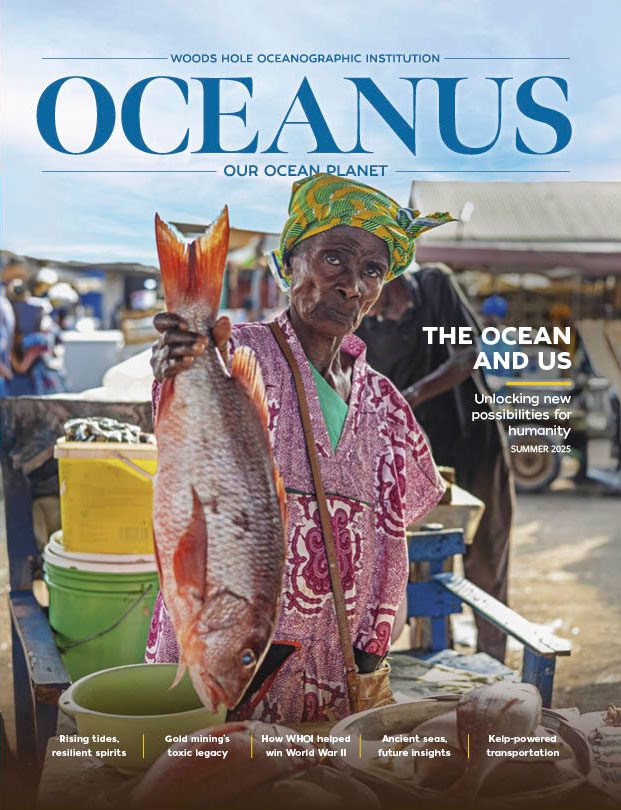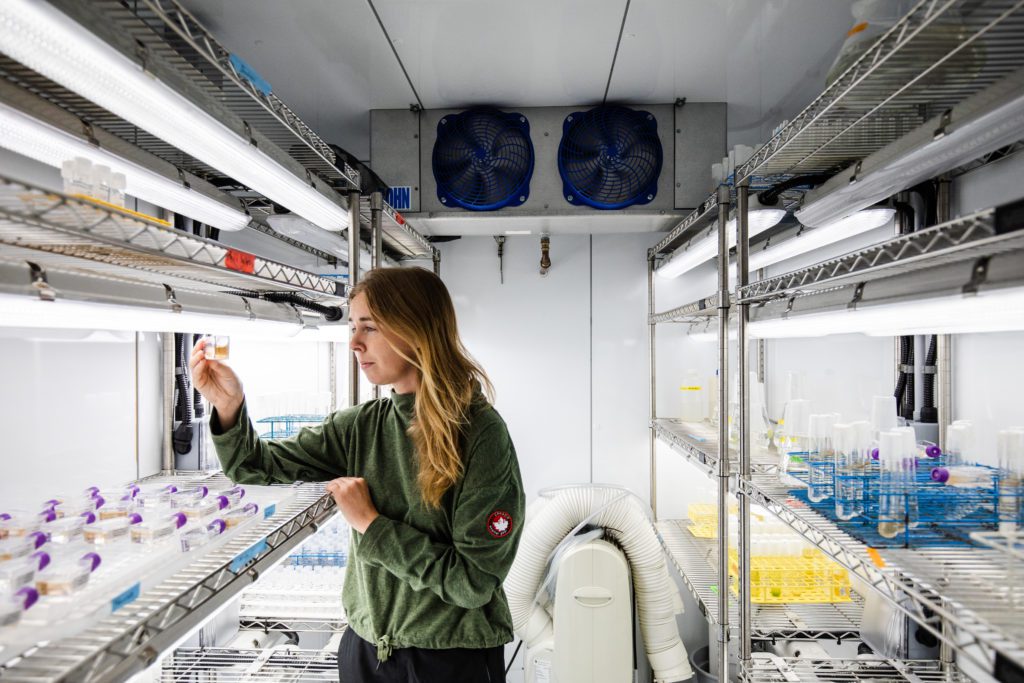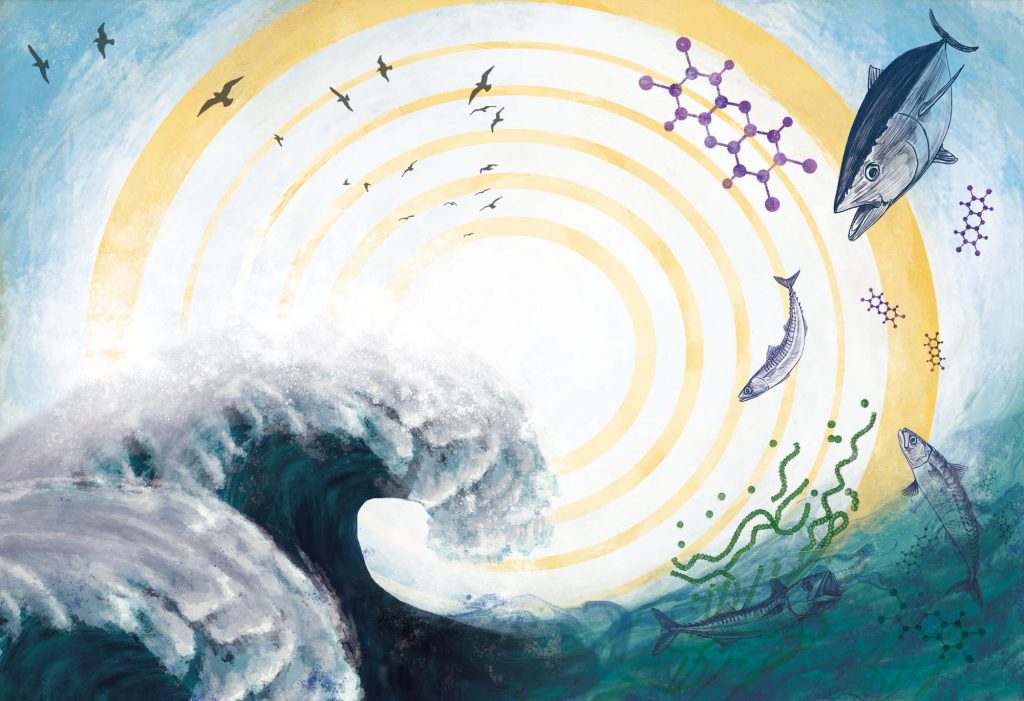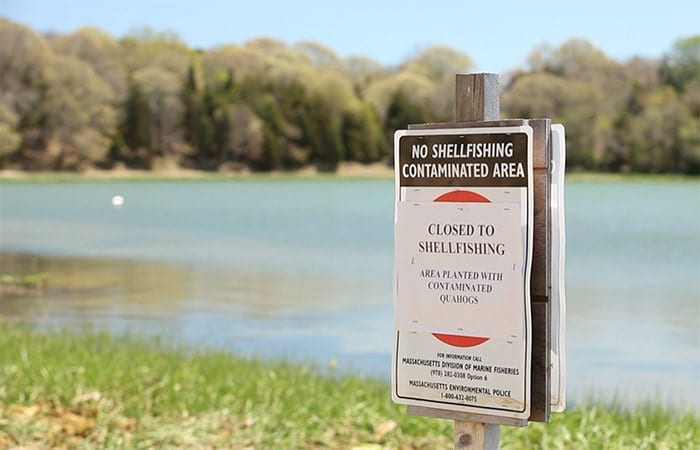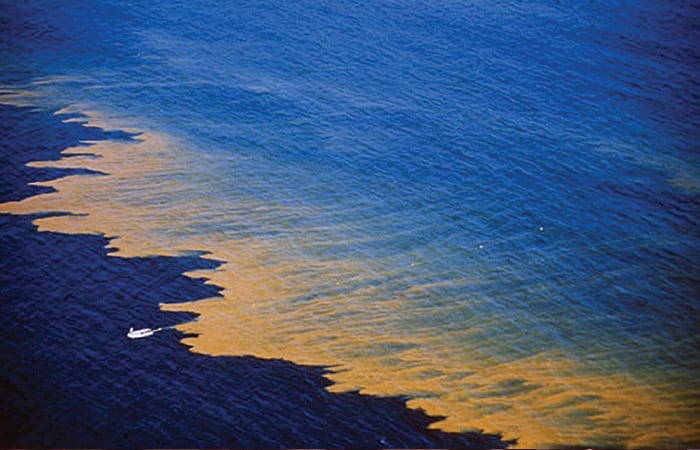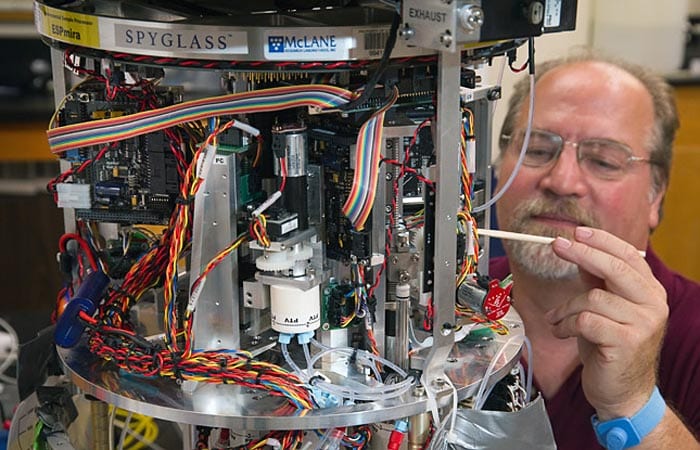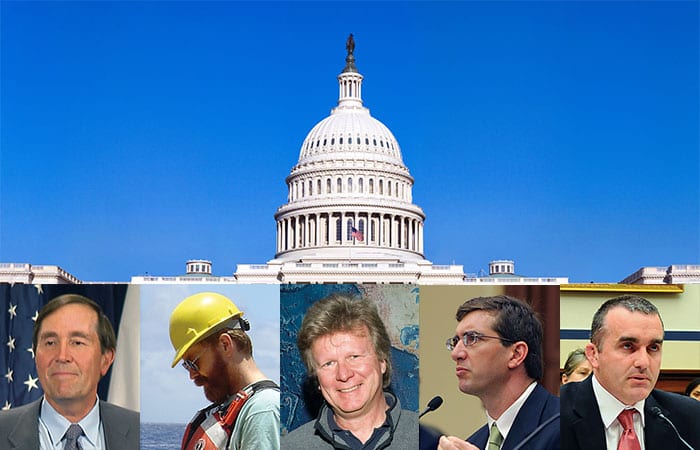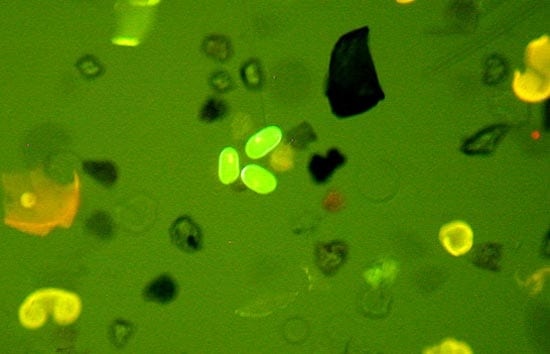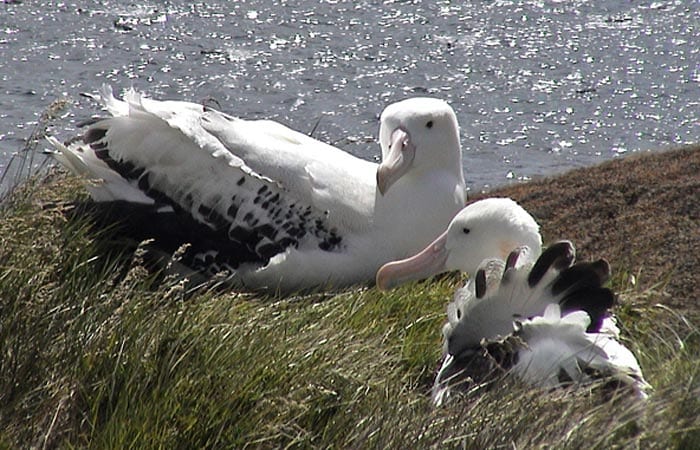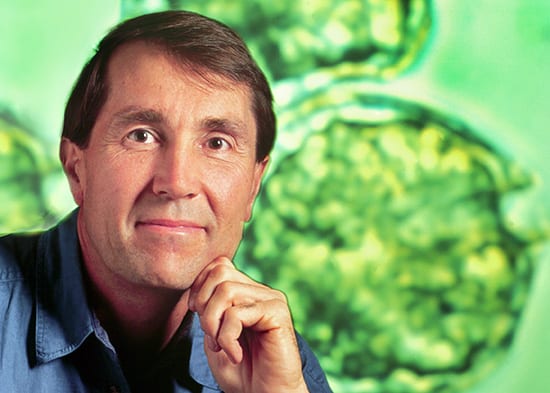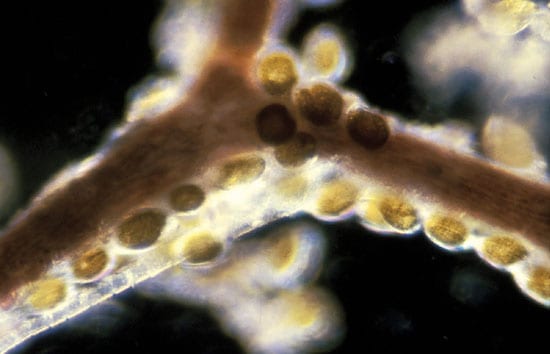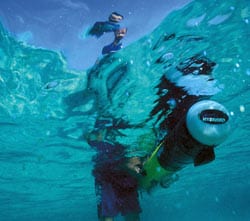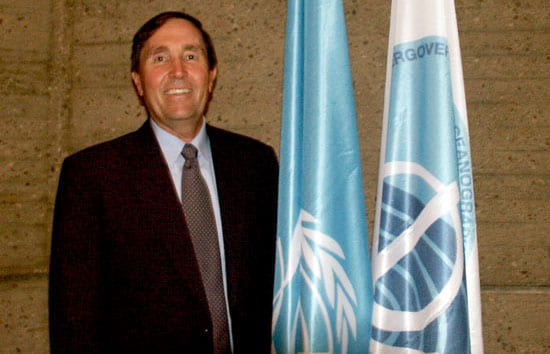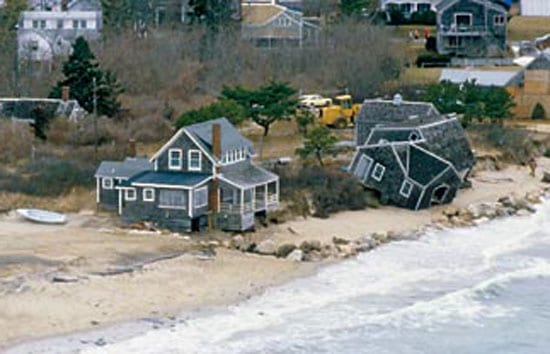Donald Anderson
Refine by
Date
Topic:
Article Type
Special Series
Author
Are warming Alaskan Arctic waters a new toxic algal hotspot?
WHOI researchers warn Arctic communities following detection of a harmful bloom
A Sea of Hazards
How ocean scientists are working to safeguard us from the perils of a changing ocean
Setting a Watchman for Harmful Algal Blooms
As harmful algal blooms are becoming more frequent and severe worldwide, researchers in the lab of WHOI biologist Don Anderson are testing an array of new instruments that can be used in early-warning monitoring systems…
Dropping a Laboratory into the Sea
Scientists at WHOI deploy moored robotic laboratories in the Gulf of Maine for long-term monitoring of red tide algae
Scientists Use “ESP” to Track Harmful Algae
Researchers in biologist Don Anderson’s lab are celebrating a new arrival—a gleaming, 3-foot-high robotic instrument that promises to revolutionize how scientists detect and study the ocean’s tiny but troublesome inhabitants: harmful algae. Moored at sea,…
WHOI Scientists Bring Expertise to Capitol Hill
Several WHOI scientists have traveled to the nation’s capital, supplying Congress with scientific information and advice on problems ranging from toxic algae and oil pollution in the oceans to climate change and a controversial proposal…
Researchers Successfully Forecast 2008 Red Tide
A research team led by scientists at Woods Hole Oceanographic Institution (WHOI) successfully predicted the widespread harmful algal bloom that materialized this year in New England coastal waters. The forecasting method offers officials and shellfish…
Seabirds Use Their Sense of Smell to Find Food
Until about 40 years ago, people thought birds had no sense of smell. John J. Audubon, the great bird artist and naturalist, had said so in 1826, after conducting experiments with vultures. He hid carrion…
Pilot Study Examines Ciguatera Fish Poisoning
It is one of the most common illnesses from eating seafood, sickening more than 50,000 people a year, and it is on the rise around the world. Yet most people in the United States have…
Building a Computer Model to Forecast Red Tides
The algae Alexandrium fundyense are notorious for producing a toxin that accumulates in shellfish such as clams, mussels, and oysters, leading to paralytic shellfish poisoning in humans. The microscopic plants are naturally distributed in New…
Anderson Addresses UN Ocean Commission
Senior Scientist Don Anderson of the WHOI Biology Department was invited to deliver the Bruun Memorial Lecture in June at the 23rd annual meeting of the Intergovernmental Oceanographic Commission (IOC) of the United Nations Educational, Social, and Cultural Organization (UNESCO).
The Coastal Ocean Institute
We are all stewards of the coastal ocean. For some of us, the connection to the sea is clear and immediate; for others, it is subtle and distant. But whether you live on waterfront property or in a land-locked hamlet, your everyday activities affect this most sensitive and most threatened portion of the world?s oceans.
